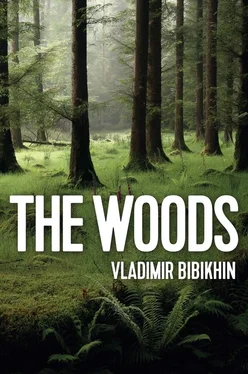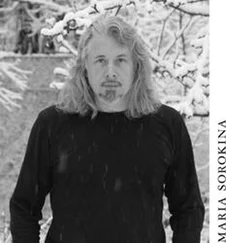Let us draw a slightly curious conclusion, probably uncontroversial, but which we shall shortly need. The state of the forest, the terrestrial forest, and of matter, the global forest, the birthplace of humanity, is extreme but indefinable. This unexpectedly brings us back to an old paradox in the history of philosophy: for Aristotle, and effectively also for Plato, matter plainly exists but no less plainly is very elusive; it is important because it occupies a place at the opposite end of the spectrum from something as important as form, eidos, but that is precisely why it is indefinable.
The situation is ‘marked’, and loudly proclaims, demonstrates, that eidos and matter are coupled, but eidos does not magisterially dictate its form to matter merely because matter is elusive and indefinable. Eidos is intertwined with matter in such a way that all matter is predisposed to certain forms and not to others, as if it were already charged with eidos. The eidos of a statue, for example, can be dictated to bronze but hardly to air; a statuette of the human figure might be carved from bone and a bust might be made of marble or clay but hardly of water.
We find this complex interweaving of eidos and matter being considered already in Plato’s dialogue Timaeus, where the place we now expect to find occupied by matter is occupied by χώρα, khora, which is also eidos, only a darker, more complicated and elusive eidos because it is wide enough to accommodate many different concepts of eidos. 1 Khora is all-accepting nature which knows no birth or emergence. It is obscure and problematical and, needless to say, also needs to be treated with caution.
At our first approach to Aristotle’s concept of matter, we obtain a result that is reassuringly trivial. There is general agreement that the concept of matter was ‘introduced’ by Aristotle: that is, he heard the word, took the risk of using the term, and was so successful that it has been found useful by everybody since, right up to the present. We are shocked by the use made of materialism in Russia, by the way people of the worst kind wielded it as a weapon and a bludgeon to crush and smash everything. We are reluctant now to use it ourselves, just as we would shrink from picking up an executioner’s axe, even if it was much needed, if it was covered with blood and we knew it had been used for beheadings. Even if it was made of good steel, even if it had been rinsed clean. We would much prefer to take a different axe, and point out that executioners are not the only people who use axes.
Everything we find ourselves ignorantly handling has properties, and these are not just something we attribute to it. We have talked in an earlier lecture series about property and ownership. 2That, however, was about property, and if we now look in more detail we will find that we are short of words to distinguish between what we think of as owned by us and what someone else may think of as owned by them. That is why I said then that the formulation proposed by Yury Lotman and Boris Uspensky, ‘our own/of others’, is incomplete. ‘Our’ Leonardo da Vinci is ours because we have mentioned him, but as I was writing that I was reminded of Pavel Florensky, who thought and felt his way so deeply into substance that he seemed to become immersed in it, as if he were no longer writing about substance but taking down dictation from it. 3For a true artist or musician, the colour or the sound are his own; he himself is the colour and sound, the mood. A craftsman begins by feeling his way into his material, the wood or the clay, and we constantly see that, for those who fail to do so, nothing comes out quite right. The Russian word ‘khaltura’, hack work, is derived from a word meaning a funeral wake (which is also ‘chaltury’ in Polish). A funeral is a hallowed occasion at which all are fed. They may be asked to eat rice, raisins, and honey, kut’ya, food for the dead. Hack work, too, is dead; it is what Heraclitus meant when he said that what was dead should be thrown out even before what was insanitary. 4
We can rest content for now with finding that our similes for the forest have one thing in common: they give the lie to the idea that there is such a thing as ‘lifeless nature’. We can never be too sensitive in seeking to understand materia. We should quote so many agreeable cultural clichés that no genuine theoretical physicist will insist there is a boundary between his own science and the humanities.
But these are all, as I say, agreeable clichés that only seem to be important. All the positive attitudes of thoughtful, humane, artistic people towards the world we live in will remain no more than hot air, because what will decide not only the fate of things, not only what people do with them, but their very emergence will be mindfulness. ‘You look at the forest from the sidelines,’ a certain knowledgeable and sympathetic person told me. In fact, however, we are looking at it from the standpoint of mindfulness, which is crucial.
There are different kinds of mindfulness. A hack is attentive: he pays attention to where and how there is dead money to be made. Investigative, probing attention will see what needs to be seen in the forest by someone who is assured of three good meals a day in comfortable surroundings and whose priority is to ensure that situation continues.
Mindfulness is not a tool to be used by humans but a state into which they can and should fall. It is not targeted at the forest. Let us instead attempt a provisional conjecture about how it is that the forest captivates us and lifts us out of metric space. It is in fact possible for mindfulness and the forest, two polar opposites, to come together. Nicholas of Cusa’s coincidentia oppositorum develops something that Aristotle all but explicitly spells out. 5We are moving towards our reading of Aristotle with a working hypothesis that for him matter, like that of Plato, will prove to be eidos.
Before we read them, let me dictate this to you: we expect to find in Plato and Aristotle conclusions that we have arrived at ourselves. What arrogance, to attribute our own concepts to distant classical authors! For anyone inclined to that view, let us add insult to injury by saying that not only do we expect to find our own viewpoint in Aristotle but that, if he does not confirm our hypotheses, we will consider there has been no point in reading him.
To anyone complaining that this is a departure from the proprieties of the history of philosophy and philology, we can and will argue that, on the contrary, it is the only proper way to read Aristotle. The history of thought, and history in general, will crumble and I will find myself a New Russian in the most deplorable sense of the word if we do not insist that the most important occupation of humans has never changed: it is working on themselves, digging down to their true self. All our talk about the classical world will prove empty (the ‘Axial Age’, the ‘beginnings of our civilization’) if we fail to notice that these were different times, when the air was purer and visibility was better. The millennia act as a filter, so that in our modern, murky, unfiltered thinking we can presently only have conjectures as to what we will find there, in the classical world, taken as if it lay in the future. We shall be capable of rising to the challenge of the future, of modernizing, only if we lose no time in rising to the challenge of the classical world, and before we can do that we must once and for all repudiate the mentality that avers ‘they had not yet …’. If there is something we talk about now that we do not find in them, that means only that we for some reason are still talking about something they long ago gave up talking about. Their silence is not because they have nothing to say: it conveys a more important message.
Читать дальше












